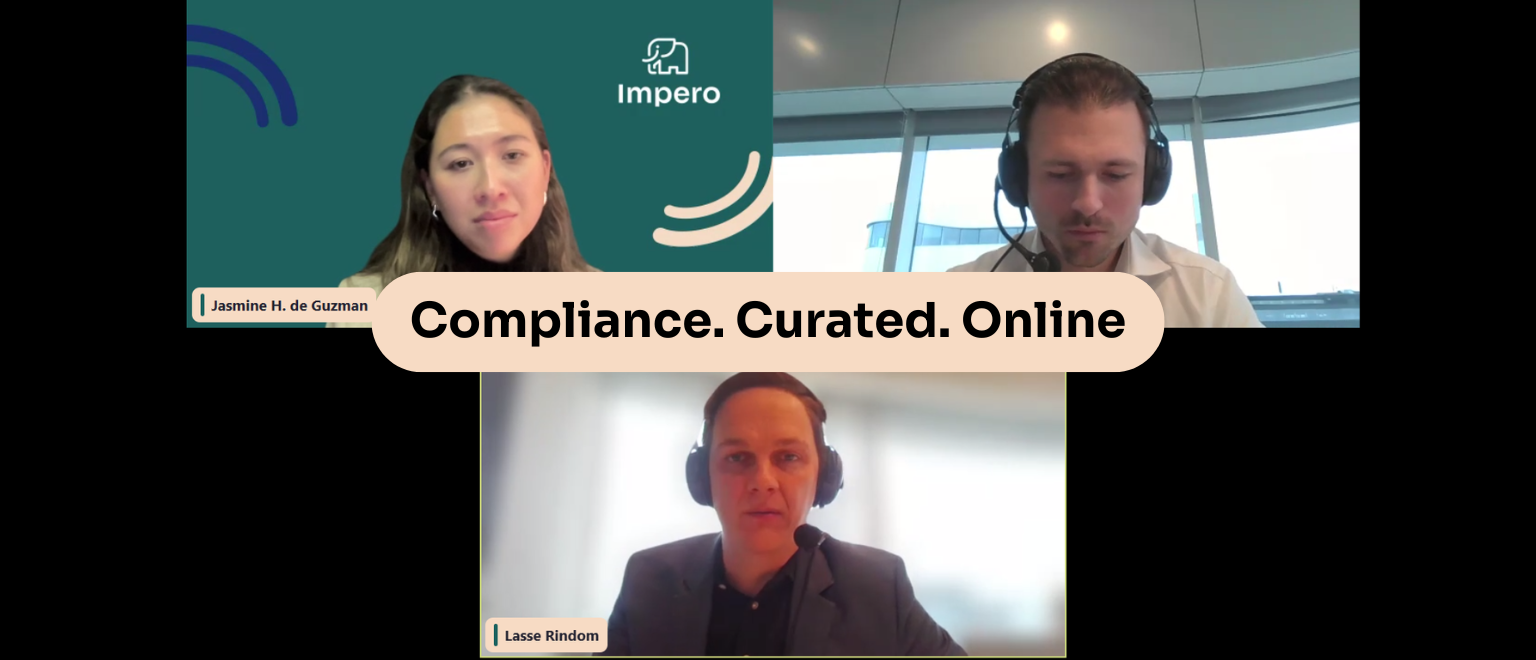.svg)
5 Reasons to Say Goodbye to Compliance by Spreadsheets
Spreadsheets are widely used in risk, control and compliance processes, but come with significant limitations. This article outlines five key pitfalls of relying on spreadsheets for internal controls and risk management—from data errors to lack of scalability—and explains how transitioning to a digital risk & control platform like Impero can mitigate these issues through automation, security, and better oversight. Learn how organizations using a modern risk and compliance tool can eliminate inefficiencies, reduce risk exposure, and improve performance.
Spreadsheets are often the go-to tool for managing compliance and internal controls due to their simplicity and familiarity. However, their shortcomings become more pronounced as organizations grow. A study by Forrester Consulting revealed that nearly 50% of companies rely solely on spreadsheets for auditing and controls, essential processes for risk assessment and compliance management. Alarmingly, almost one-third of respondents reported using more than 10,000 spreadsheets regularly, highlighting the extent of spreadsheet sprawl and its associated risks.
1. Data Integrity Errors
According to Salesforce, 88% of spreadsheets contain errors. These inaccuracies can lead to flawed reporting, missed compliance targets, and regulatory penalties. In the context of reporting, even a small formula mistake or incorrect input can result in misreported metrics or inaccurate risk assessments. For example, a single mislinked cell in a control register can skew test results and jeopardize audit readiness. A digital risk & control solution helps mitigate this risk by ensuring standardized inputs and version control across all compliance documentation.
2. Limited Oversight and Visibility
When compliance documentation is distributed across email threads and local drives, oversight becomes nearly impossible. Organizations struggle to obtain a real-time view of control completion or status tracking. Jacob Kring, Head of Global Finance Processes at DOVISTA A/S, shared how Impero helped overcome this challenge: “Impero is easy to use, and it enables great transparency into our processes.” By implementing Impero for Financial Controls, Tax Controls, and Month-End Closing, DOVISTA achieved greater accuracy, efficiency, and standardization. Impero eliminated many manual interventions and provided a structured, transparent control environment that supports both operational excellence and audit readiness. This level of oversight enhances both risk mitigation and internal audit responsiveness.
3. Manual Dependencies
Manual workflows create bottlenecks. Whether it’s someone forgetting to send a file or tasks being delayed due to absences or holidays, control implementation can easily stall. A modern risk & control solution like Impero automates the assignment and execution of tasks, with notifications and scheduled approvals. Before implementing Impero, Vorwerk Group's tax department grappled with manual control processes that often resulted in undocumented activities and inefficiencies. By transitioning to Impero's automated platform, they established a structured control framework within a day and initiated their first controls within a week. This shift not only enhanced the accuracy of their controls, but also freed up the team to concentrate on more strategic, value-adding tasks.
4. Inadequate Access Controls
Spreadsheets offer limited permission management. A single accidental overwrite or unauthorized edit can compromise control documentation. This creates operational inefficiencies and compliance risks. Impero enables fine-grained, role-based access control, audit logs, and encryption, ensuring that sensitive internal control data remains protected and compliant with standards such as SOX. The STARK Group illustrates this well: by moving from manual, paper-based internal controls across five countries to a digitized platform, they were able to structure access by user roles, enabling individuals to complete, justify, or defer controls efficiently within clearly defined boundaries.
5. Inefficiency in Scaling
As compliance programs grow, the complexity of managing controls, testing, and reporting increases. Spreadsheets lack the scalability to handle new business units, geographies, or evolving regulatory frameworks. The Vorwerk Group leveraged Impero to implement standardized compliance frameworks across 70+ countries. Using Impero, Vorwerk’s tax department was able to implement a structured control framework in a single day and roll out transfer pricing controls across multiple countries within a week. This rapid setup provided consistent documentation, improved visibility, and fostered a shared understanding of compliance expectations across entities.
Conclusion
Managing risk and compliance with spreadsheets may seem feasible at first, but the limitations quickly outweigh the benefits. A modern compliance management solution like Impero replaces fragmented, error-prone processes with structured, secure, and scalable workflows. Whether you’re preparing for SOX audits, managing internal controls, or scaling your risk framework, Impero delivers the automation and oversight required to stay ahead. Learn more at impero.com.
Get the latest from Impero in your inbox.
Stay informed on all things Impero — webinar & event invites, exclusive content, product launches, and more! Or let us show you why Impero is the right choice for your risk and compliance needs.

You might also like...
Explore insights, product updates, and practical guidance to navigate the world of risk & internal controls.












